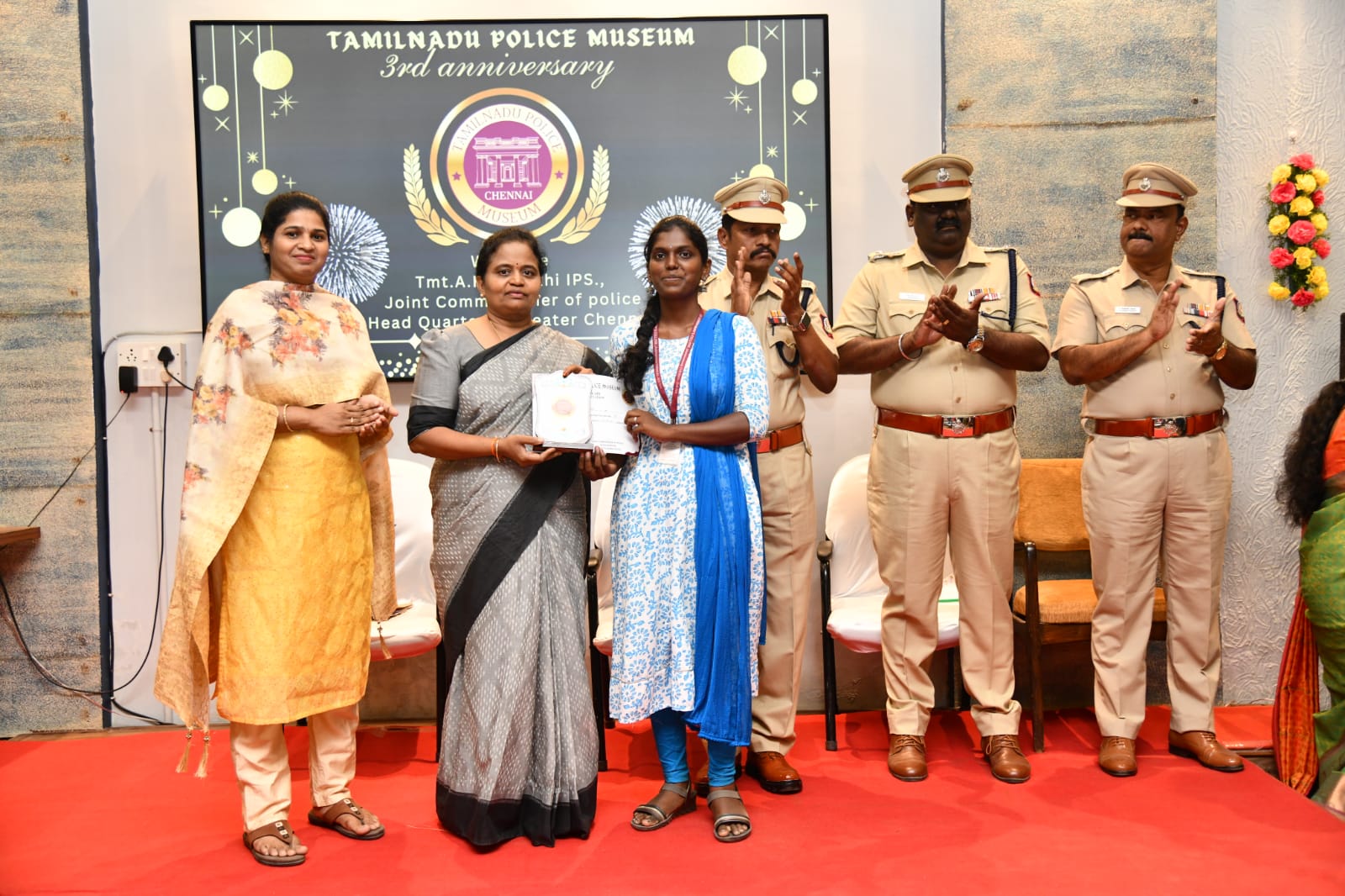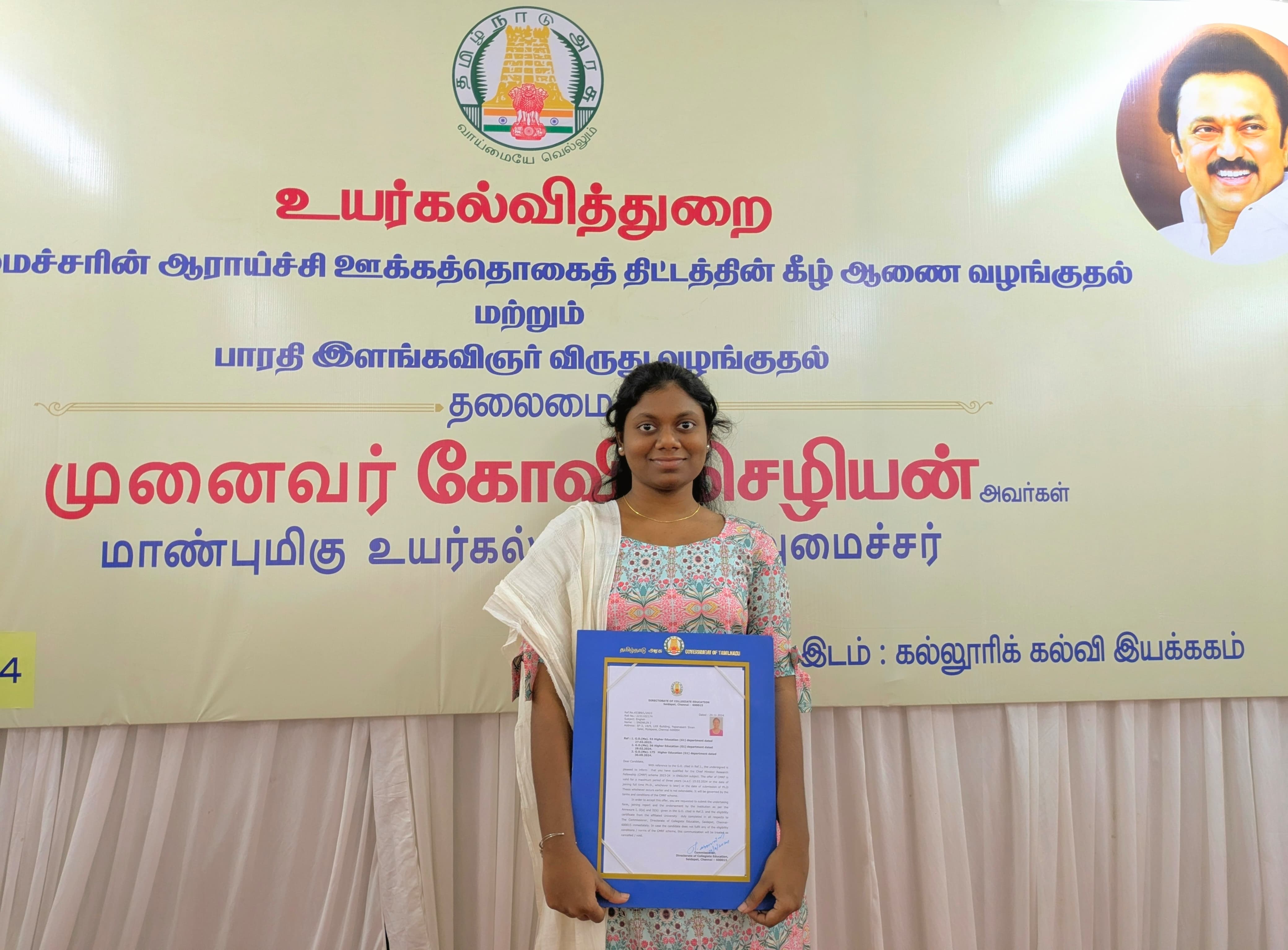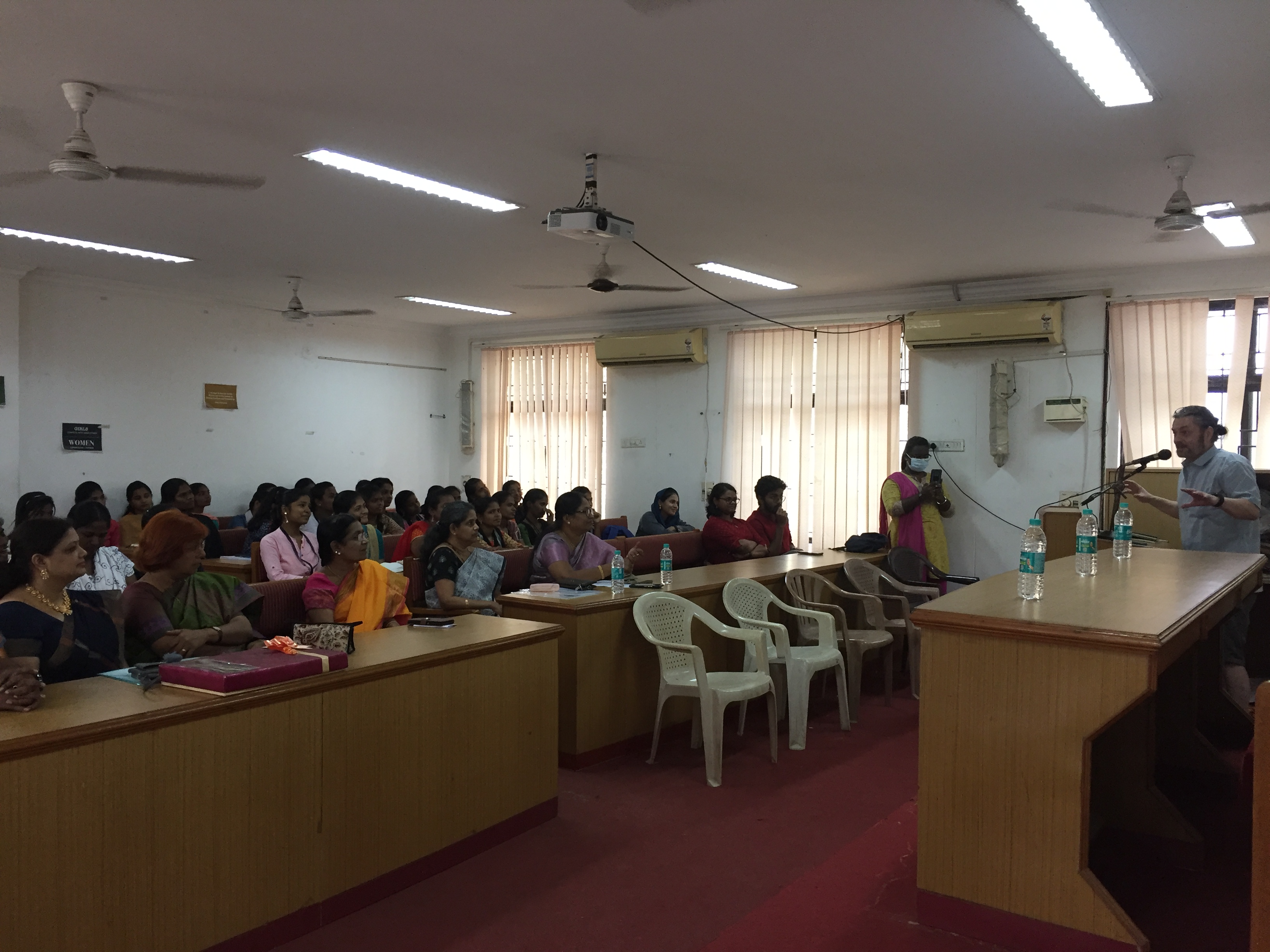Department Profile
About the Department
The establishment of the department of English in the year 1957 is the great milestone in the history of Queen Mary's College. The BA English Course began in the same year. MA English Literature was introduced in 1979. The academic profile of the department was further enhanced by the introduction of the M.Phil Programme in 1993. With a view to employing technology-aided teaching of English, the Language Lab was set up in 2006. The English department got upgraded with the introduction of part time Research Programme and further added a feather to the cap by introducing full time Ph.D in the academic year 2018-19.
Vision
The Department of English envisions enhancing the competence of the students, particularly the first generation learners in relation to spoken and written communication skills. The UG and PG courses promote analytical thinking and creative ability, awareness and appreciation of different literary genres and forms, gender sensitivity, ethnic and cultural differences with an accent on self development and human values through the study of Literature.
Mission
Queen Mary’s College is truly egalitarian as it offers access to higher education for the deprived sections of society. As Communication Skills is a challenge faced by many first generation learners, the Department takes cognizance of the same and focuses on leveraging their study of English Literature to making the students skilled communicators. The Department has designed a curriculum with emphasis on Literatures of various cultures, creative writing, grammar, spoken and written communication and soft skills, so as to achieve the objectives. Elective courses include Spoken and Presentation Skills, Academic Writing, Journalism and Business English. Post-graduate students enjoy the opportunity of doing a dissertation in their favourite chosen area to compliment their profile and translation project. Orientation programmes are conducted for the I year UG, PG and M.Phil Students. Fortnightly Symposium is organised to enhance the critical thinking of the students and the research scholars. Through classroom activities as well as departmental association activities the department aims to nurture leadership qualities and team spirit among students.
Courses Offered
Programme Outcome
In sync with the institution’s vision and mission, the B.A and M.A English Programmes are oriented towards empowering the students with communication skills required at the professional level, i.e. in teaching and media where proficiency in English is a prerequisite. As communication skills and higher order thinking are nurtured by the study of English language and literature, the department envisions a significant contribution to society through the training offered through the BA and MA English programmes. The courses and curriculum are so designed to whet the students’ critical acumen as well as aesthetic sensibilities and help them cultivate such qualities of heart and mind that render them socially responsible, in addition to having a progressive outlook which will have a salutary influence in their respective spheres of influence (personal, social and professional). The courses seek to provide a sound foundation so that students pursuing higher studies in English may be worthy emissaries of the discipline.
The syllabus and curriculum are designed to provide the student a holistic understanding of English studies, with adequate exposure to foundational knowledge of the discipline, application oriented aspects as well as new texts and trends. Communication is the bedrock of English studies. Engagement with the cultivation of all four communication skills (listening, speaking, reading and writing) is synchronous in the English studies curriculum as students listen to inspiring lectures, read extensively and intensively and have immense opportunities to write (critically and creatively) and speak eloquently. English studies fosters “thinking out of the box”. The practice of practical criticism in the approach to interpreting texts and the encouragement to think and express creatively and balance their “originality” with in-depth knowledge of the subject in order to make well founded observations renders them with abilities to think critically and offer solutions to problems even in contexts that are outside the realm of interpretation of literary texts. “Critical thinking” is a life skill nurtured by the English studies curriculum.
Though the study of literature is “amoral”, ethics and human values are at the core of all literary explorations. Students emerge from the English studies programme with more refined sensibilities, broad mindedness and social vision which are essential in humanity’s march towards an inclusive and pluralistic society. English Literature as a discipline has its distinct approach to delving into unchartered territory. The student of Literature is also trained to engage with the 6 “wh” questions, (who, where, when, what, why and how) which is foundational to self-learning. Queen Mary’s College and the Department of English have grown on a legacy of teamwork. This spirit is ever present in the curriculum, not only in day to day classroom teaching/learning where there is group discussion, team assignments, but also in the annual inter-class Literospectrum competitions where the students team up for a host of literary activities.
The curriculum adopts the Humanities approach to critical thinking and problem solving by encouraging the students to respond to real life situations depicted in texts. Through these exercises students realize that society can be changed through “thinkers” and their intellectual development can contribute to the same. Students are encouraged to ask questions, debate and make their own observations both of what is in written in texts as well as in real life situations. The sense of inquiry becomes a significant part of their mental make-up. Independent learning is encouraged and a good number of students are equipped to be skilled project managers.The department upholds learning practices that are holistic. As foresight and vision are emphasised most students would engage in lifelong learning.











-VinithaFrancis.JPG)
-VinithaFrancis.JPG)
-VinithaFrancis.JPG)
-VinithaFrancis.JPG)
-VinithaFrancis.JPG)